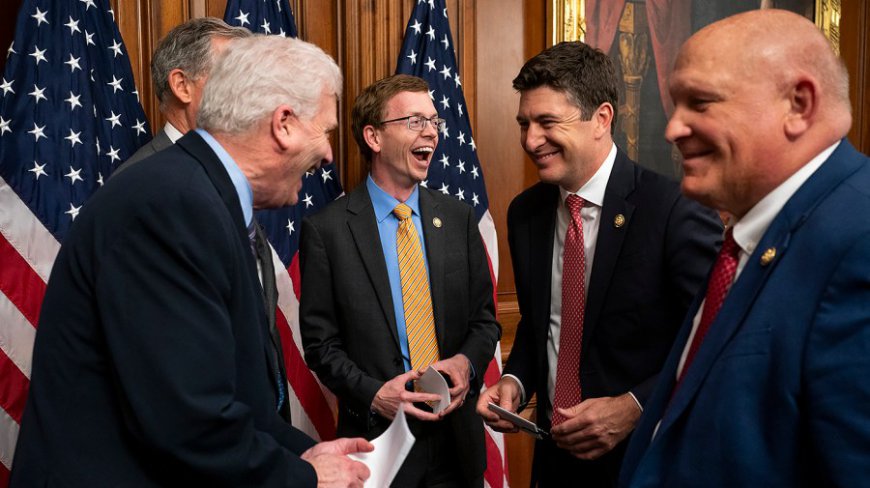Lawmakers voted 308-122 on Thusday to pass the GENIUS Act following a tumultuous “crypto week” in the chamber that saw competing GOP factions bring the House floor to a standstill for two days.
A dozen Republicans voted against the measure, while 102 Democrats supported it.
The bill regulating dollar-backed digital tokens now heads to Trump’s desk, where he has indicated he is eager to sign it.
“For far too long, America’s digital assets industry has been stifled by ambiguous rules, confusing enforcement and the Biden administration’s anti-crypto crusade,” Majority Whip Tom Emmer (R-Minn.) said at a press conference Thursday.
“But President Trump and this Congress are correcting course and unleashing America’s digital asset potential with historic, transformative legislation,” he continued.
“President Trump promised to make America the crypto capital of the world, and today, we delivered,” Emmer added.
The legislation’s future appeared in jeopardy less than 24 hours earlier.
A group of hardline Republicans tanked a procedural vote on a trio of crypto bills Tuesday, freezing the floor.
Trump struck a deal to secure their support the next day, but several holdouts remained Wednesday, as the House attempted once again to adopt a rule governing debate on the bills.
The agreement Trump reached with the hardliners also prompted new backlash from members of the House Financial Services Committee.
The deal sought to add provisions from the Anti-CBDC Surveillance State Act, which aims to bar the Federal Reserve from issuing a central bank digital currency (CBDC), to a broader crypto framework called the Digital Asset Market Clarity Act. Both measures passed the House as well Thursday.
After hours of deliberation Wednesday — during which the rule vote remained open and the number of “no” votes from hardliners continued to grow — GOP leadership reached a deal to add the anti-CBDC provisions to the National Defense Authorization Act.
Including the provisions in the must-pass legislation would put them on track to reach Trump’s desk, assuming they don’t get stripped out of the bill as it weaves its way through Congress later this year.
The agreement convinced most of the remaining holdouts to switch their “no” votes on the rule to “yes,” allowing it to pass after more than nine hours.
It easily surpassed the previous record for longest vote in the chamber, which the House set just two weeks earlier during consideration of the GOP’s “big, beautiful bill.”
Check out the full report at TheHill.com.
































